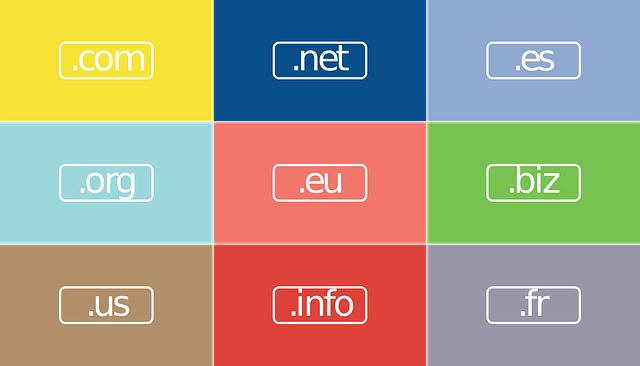Startups require robust, flexible, and cost-effective web design solutions for rapid growth. Full-service agencies provide specialized teams covering all aspects of website development, from concept to maintenance. This approach offers a one-stop solution, allowing startups to focus on core operations while professionals handle complex tasks. A well-designed website, built with modern technologies like React and Python frameworks, enhances user experience (UX) and drives conversions through strategic content and SEO optimization. Integrated e-commerce capabilities, analytics tools, and branding elements tailor the online presence to target audiences and business goals, ensuring startups stay competitive and achieve success in today's digital era.
In today’s digital landscape, a robust online presence is non-negotiable for startups aiming to thrive. This article guides you through the essential components of web design and development tailored to startup needs. From understanding unique business requirements to implementing full-service web design, we explore strategies that unlock comprehensive solutions. We delve into user experience (UX) as a key driver of success, content strategy for compelling narratives, and search engine optimization (SEO) for enhanced visibility. Discover how the right technologies and iterative design foster growth for scalable startup websites.
Understanding Startup Needs: A Unique Approach to Web Design

Startups often have unique and evolving needs when it comes to their online presence. Unlike established businesses, they require a web design approach that supports rapid growth, flexibility, and cost-effectiveness. A full-service web design agency understands these challenges and tailors its services accordingly.
This involves creating dynamic websites that not only look visually appealing but also provide seamless user experiences across various devices. It’s about building platforms that can scale with the startup’s growth, incorporating essential features like content management systems (CMS) for easy updates, robust e-commerce capabilities for online sales, and integration with analytics tools to track performance. Moreover, a strategic design approach considers the startup’s target audience, brand identity, and business goals to deliver a website that drives conversions and fosters customer engagement.
Full-Service Web Design: Unlocking Comprehensive Solutions for Startups

Many startups struggle with their online presence, often because they lack the in-house expertise for comprehensive web solutions. This is where a full-service web design approach comes into play, offering a one-stop-shop for all startup needs. It involves a team of specialists who provide an array of services from initial concept and design to development, launch, and even ongoing maintenance and support.
This holistic method ensures startups can focus on their core business while professionals handle the intricate details of creating and managing a robust online platform. Full-service web design also facilitates scalability, adapting to a startup’s evolving needs, whether it’s a simple website or an e-commerce platform with advanced functionalities.
The Role of User Experience (UX) in Startup Success

In today’s digital landscape, a startup’s online presence is pivotal for its success and growth. Full-service web design plays a crucial role in shaping this digital footprint, ensuring startups create an engaging user experience (UX) that resonates with their target audience. A well-designed website acts as a virtual storefront, guiding potential customers through a seamless journey, from initial interest to conversion and loyalty.
Effective UX involves understanding user needs, behaviors, and preferences. It’s about creating intuitive navigation, visually appealing layouts, and efficient interactions that simplify tasks and enhance user satisfaction. By prioritizing UX, startups can foster trust, encourage engagement, and ultimately drive conversions. This strategic approach ensures the website becomes a powerful tool, not just for showcasing products or services but also for building lasting relationships with customers.
Building an Engaging and Responsive Website for Maximum Impact

In today’s digital landscape, a startup’s online presence is its storefront to the world. Building an engaging and responsive website is therefore a full-service web design imperative. It not only captivates visitors but also ensures your brand message resonates across all devices, from desktops to smartphones. A well-crafted, mobile-first approach enhances user experience, encourages engagement, and ultimately drives conversions.
Full-service web design specialists understand this crucially. They leverage the latest technologies and trends to create dynamic, responsive websites that adapt seamlessly to different screen sizes, ensuring your startup stays competitive. By prioritizing speed, accessibility, and visual appeal, they deliver a robust online platform that not only attracts but also retains users, leaving a lasting impression and paving the way for business growth.
Choosing the Right Technologies for Scalable Startup Websites

When building a scalable startup website, selecting the appropriate technologies is paramount. A full-service web design approach that considers both current and future growth is essential. Startups should prioritize platforms and frameworks known for their flexibility, ease of integration, and robust community support. Technologies like React, Angular, or Vue.js for front-end development offer dynamic user interfaces and efficient code reusability. On the back end, Python (with Django or Flask), Node.js with Express, or Ruby on Rails are popular choices due to their scalability and extensive library ecosystems.
Moreover, incorporating modern web design practices like responsive design, progressive enhancement, and seamless API integrations ensures your website can adapt to changing user needs and market trends. A well-architected tech stack enables seamless scaling as your startup grows, allowing you to effortlessly add new features or handle increased traffic without sacrificing performance or user experience.
Content Strategy: Crafting Compelling Narratives for Startup Brands

In the dynamic landscape of startups, a compelling content strategy is key to capturing attention and building brand affinity. Full-service web design goes beyond aesthetics; it involves crafting narratives that resonate with the target audience. Storytelling is an art that transforms mere information into engaging experiences, fostering connections between brands and their customers. Effective content weaves together values, mission, and unique selling points in a structured narrative arc that guides users through the customer journey.
A strategic approach to content creation ensures every element on the webpage—from headlines to call-to-actions—aligns with the brand’s voice and messaging. This coherence builds trust and encourages user interaction. Whether it’s highlighting product features, sharing company milestones, or addressing pain points of the target market, a well-thought-out content strategy becomes the lifeblood of a startup’s online presence, driving engagement, conversions, and ultimately, success.
Search Engine Optimization (SEO) Fundamentals for Startup Visibility

In today’s digital landscape, a startup’s online presence is pivotal for success, and a robust strategy starts with Search Engine Optimization (SEO). Full-service web design goes beyond aesthetics; it involves crafting websites that search engines love. This includes optimizing content, ensuring fast loading times, mobile responsiveness, and creating structured URLs. By implementing these fundamentals, startups can increase their visibility on search engine results pages (SERPs), attracting organic traffic and potential customers.
A well-designed website, combined with effective SEO practices, becomes a powerful tool to outshine competitors. It’s about making your startup easily discoverable when users search for solutions related to your niche. From keyword research to meta tagging, every element contributes to building an online identity that resonates with the target audience. This strategic approach not only boosts initial visibility but also fosters long-term growth and brand recognition.
Integrating E-commerce: Selling Products Online Effectively

In today’s digital landscape, startups looking to establish a strong online presence cannot afford to overlook the integration of e-commerce capabilities. A full-service web design approach can play a pivotal role in creating an effective and user-friendly e-commerce platform tailored to the startup’s unique needs. By combining stunning visual appeal with seamless navigation, a well-designed website becomes a powerful sales channel.
Full-service web design agencies offer expertise in building robust e-commerce solutions, incorporating secure payment gateways, product management systems, and advanced search functionalities. These features ensure that startups can efficiently manage their online inventory, process transactions securely, and provide customers with a seamless shopping experience. With the right design and development strategy, startups can effectively sell products online, expanding their reach and enhancing their ability to compete in the digital marketplace.
Measuring Success: Analytics and Iterative Design for Startup Growth

Measuring success is a critical component of any startup’s journey, and web design plays a pivotal role in achieving this. By integrating robust analytics tools into your website, startups can gain valuable insights into user behavior, conversion rates, and traffic sources. These data-driven metrics provide a clear direction for iterative design improvements, enabling the startup to enhance its online presence and user experience continuously.
A full-service web design approach, which encompasses both initial development and ongoing optimization, is essential for sustainable growth. Regular analysis of key performance indicators (KPIs) allows startups to make informed decisions, adapt their strategies, and stay ahead of the competition. This iterative process ensures that the website remains relevant, engaging, and aligned with the evolving needs of the target audience, ultimately driving business success.
